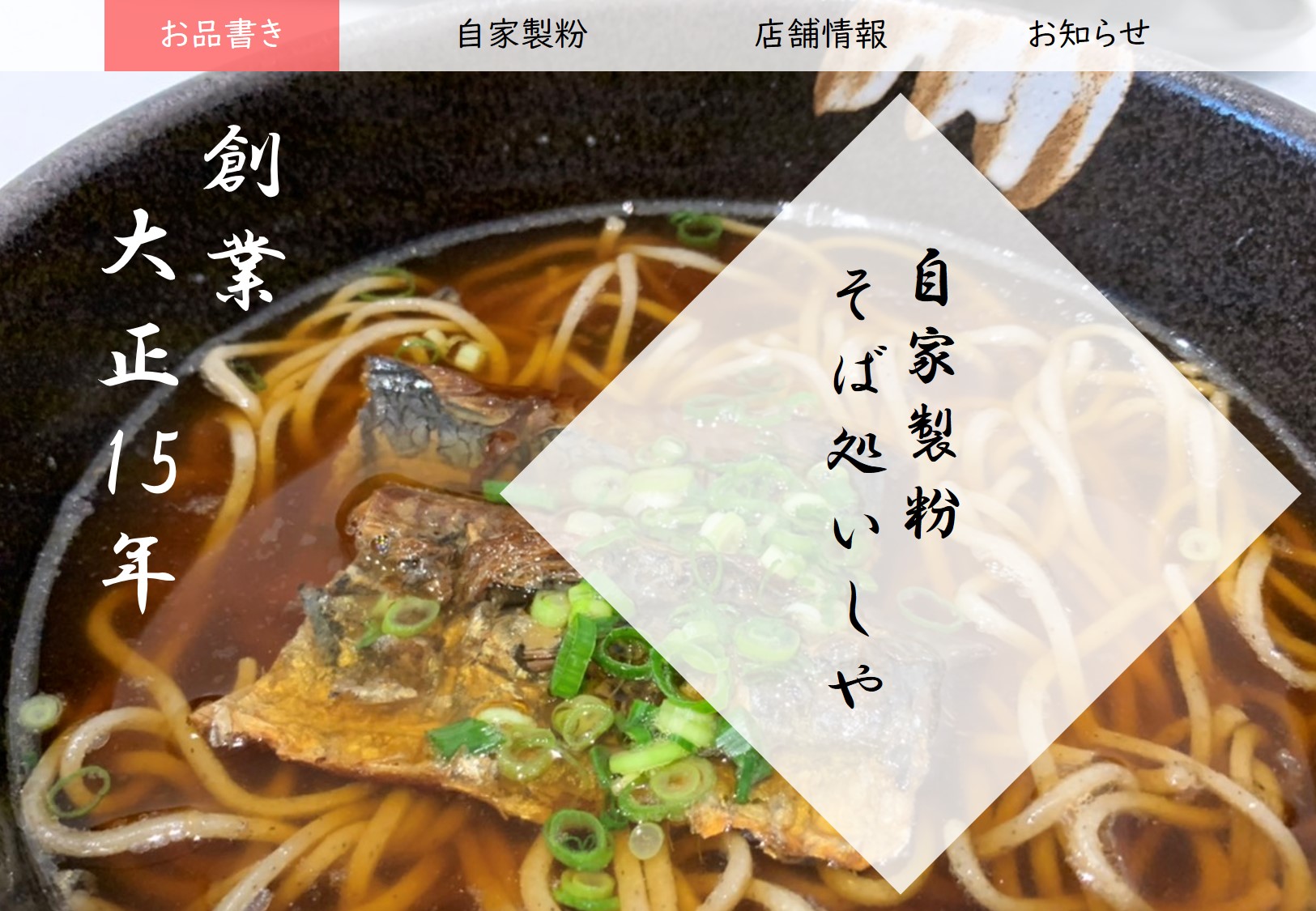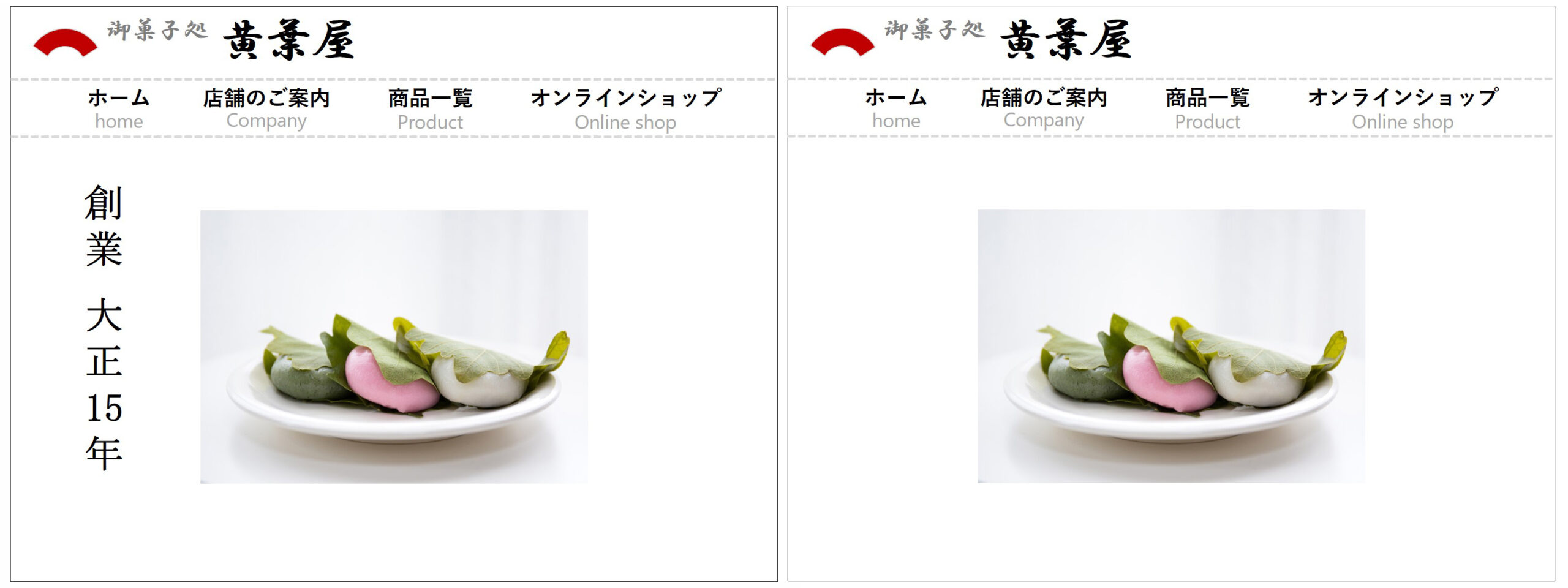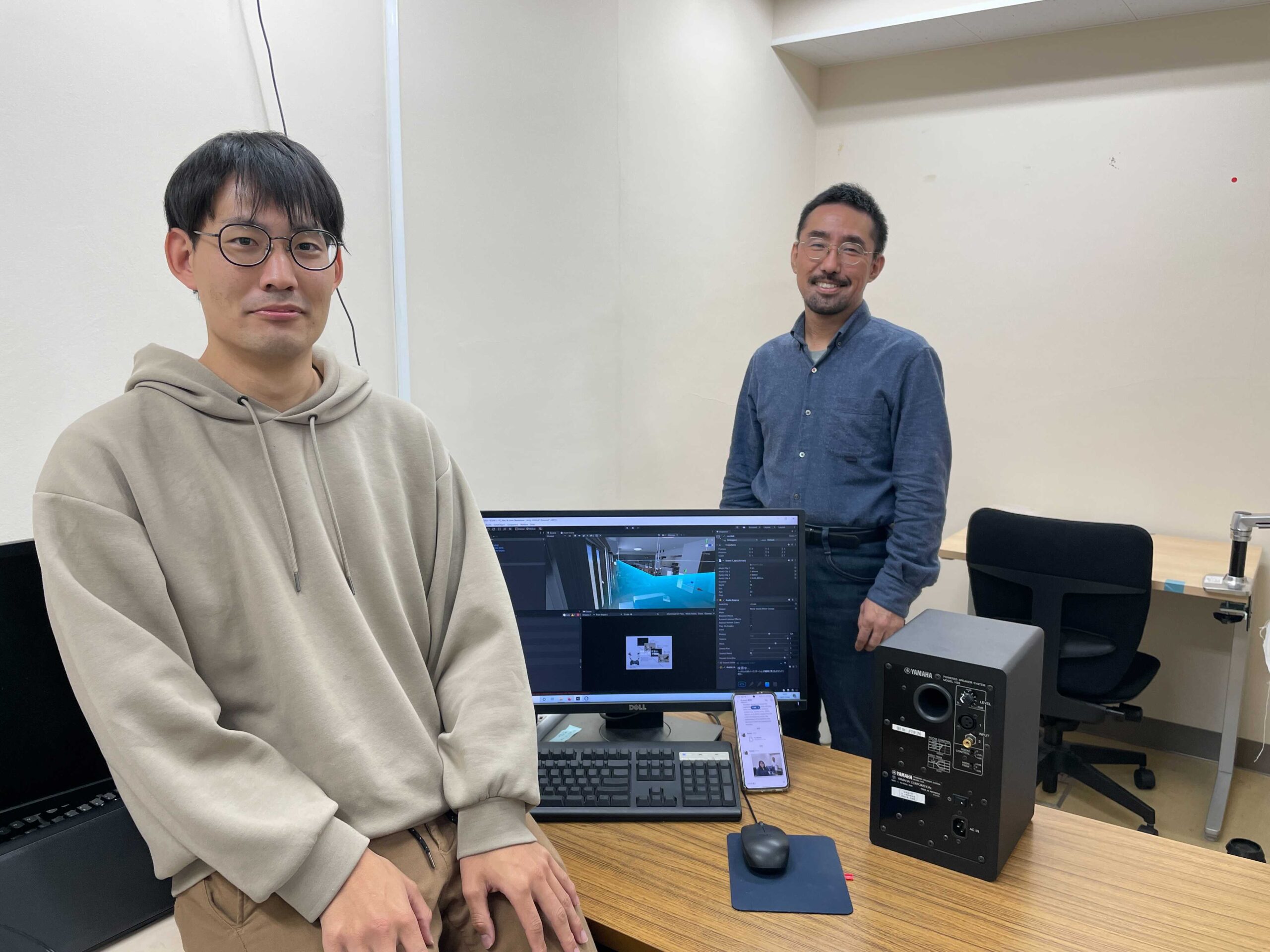Traditional restaurants displaying a year of establishments are more preferred
Research Press Release | November 11, 2021
Japanese customers have higher expectations of restaurants selling traditional foods when they display an older year of establishment.

A fictitious soba restaurant website created for the study. The participants were provided images of the website with and without a date of establishment. The establishment year is “大正15年” (Taishō 15, 1926; Tomoki Maezawa and Jun I. Kawahara).
There are a number of factors that affect evaluations of goods in the market. In addition to well-known factors such as branding, other factors such as nutritional information, advertising and symbolism can significantly affect the evaluation of these products. It is known that branding and labeling that matches customer expectations of the product increases evaluations. This has also been observed in stores that sell traditional, classical, historical and antique products.
Tomoki Maezawa and Jun I. Kawahara of the Department of Psychology, Faculty of Letters, Hokkaido University have revealed that Japanese restaurants selling traditional foods could potentially gain higher rankings if they also display an older year of establishment. Their findings were published in the journal PLOS ONE.
The researchers observed that a large number of soba (buckwheat noodle) restaurants in Japan center their advertising around old years of establishment. As soba is a traditional Japanese food, they were curious if this strategy had a measurable impact on the evaluations of these restaurants.
For this study, they created a set of fictitious restaurant websites that displayed the year of establishment. For the control group, they created websites that did not display a year of establishment. They measured three variables related to the evaluation of the restaurants: expected product quality, expected taste, and intention to visit.

A fictitious Japanese confectioner’s website created for the study. The participants were provided images of the website with (left) and without (right) a date of establishment. The establishment year is “大正15年” (Taishō 15, 1926; Tomoki Maezawa and Jun I. Kawahara).
A group of 34 participants rated their expectations regarding the three variables. The presence of the year of establishment improved evaluations, with a particular effect on the intention to visit. The researchers conducted a follow-up experiment to verify that the year of establishment was the key factor, rather than other information on the website. Moreover, an older year of establishment led to higher expectations.
They then performed a set of experiments to determine if their observations could be extended to food shops in general, and to a younger population. In this set of experiments, 136 participants were recruited, to evaluate fictitious establishments selling cheese, hamburgers, wine, or Japanese confections. The year of establishment was displayed according to the Gregorian Calendar. Existence of a label with a year of establishment positively affected evaluations for the western foods but not the Japanese confections. The researchers, in their follow-up experiments, found that the lack of an effect on Japanese confections was due to the use of the Gregorian calendar rather than the Japanese calendar.
“Our study found that participants had more favorable evaluations toward food shops and restaurants when web advertisements were accompanied by past-focused labels,” says Kawahara. “Thus, temporal congruence between the label and to-be-rated food restaurants or shops plays an essential role in ensuring that these advertisements are effective for improving positive evaluations.”
Original Article:
Tomoki Maezawa, Jun I. Kawahara. A label indicating an old year of establishment improves evaluations of restaurants and shops serving traditional foods. PLOS ONE. November 10, 2021
DOI: 10.1371/journal.pone.0259063
Funding:
This work was financially supported by a Grant-in-Aid from the Japan Society for the Promotion of Science (JSPS) Fellows (20J20490) and Grants-in-Aid for Scientific Research from the JSPS (20H01779, 20H04568).
Contacts:
Professor Jun I. Kawahara
Department of Psychology
Faculty of Letters
Hokkaido University
Email: jkawa[at]let.hokudai.ac.jp
Sohail Keegan Pinto (International Public Relations Specialist)
Public Relations Division
Hokkaido University
Tel: +81-11-706-2185
Skype: hokudai.pr1
Email: en-press[at]general.hokudai.ac.jp

